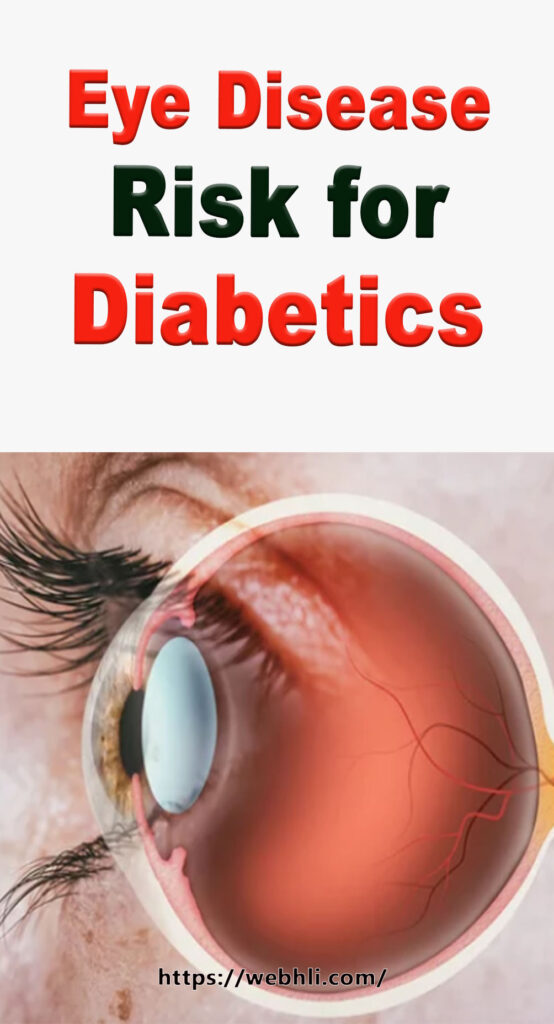
Every single day, diabetics have to manage many facets of their lives non-diabetics take for granted even when insulin injections are not necessary. The disease affects approximately 25 million Americans.
According to the Center for Disease Control and Prevention (CDC), the vast majority of blindness in adults between the ages of 20 and 74 is caused by diabetes.
In addition to the many daily tasks of a diabetic, a yearly eye exam is very important since diabetes can lead to blindness. Unfortunately, many people with diabetes do not follow their physician's advice.
Check out these related articles, too:
Bitter Melon Recipe For Diabetes
Control Your Diabetes Better With These Helpful Tips
Gastroparesis - A Challenge to Control
Blood Sugar Control and Diet - A Plan to Reverse Diabetes
Diabetes Natural Home Remedies – Worth a Try?
Can Magnesium Prevent Diabetes?
Zinc Shown to Promote Insulin Production In Diabetics
Prevent Side Effects From Diabetes Drugs
Why You Should Stop Taking Drugs for Your Diabetes
Those diagnosed with diabetic eye disease usually did not experience any noticeable symptoms-without a dilated eye exam the disease is difficult to detect.
Diabetic Eye Disease
There are several types of eye disease that diabetics suffer from, the most common include: diabetic retinopathy, cataract and glaucoma.
When diabetics experience blood sugar elevation for extended periods of time, their blood vessels are damaged. The blood vessels in the eye are very delicate, and these now abnormal vessels can bleed, leak or become blocked.
The symptoms experienced that usually lead to an eye exam can include the following problems with their vision:
· Blurring or fluctuating images
· Seeing double occasionally
· Trouble seeing at night
· Seeing flashers and floaters either by one or both eyes.
Because so many diabetics are not getting an eye exam annually, oftentimes the disease is advanced by the time symptoms appear. However, early detection can mean the difference between losing some of your sight versus blindness.
Getting an annual eye exam can ensure diabetics who develop the disease the chance at saving their sight.
Remember, not everyone experiences symptoms, so the disease continues to damage the vision until a symptom is noticed-the damage having already been done. While treatments can help retain your sight, the damage cannot be undone.
With early detection and immediate treatment, there can be as much as a 95% reduction in severe vision loss.
Once detected, diabetic eye disease treatment can include either laser surgery or injections.
Shocking Survey Results
In an online poll recently done by Diabetic Connect, an online diabetic community, an astonishing number of diabetics indicated they did not have an annual eye exam.
The survey looked at 1,674 patients diagnosed with diabetic eye disease who are either type 1 or type 2 diabetics and found that only 36% had talked to their physician about the risk of vision loss. Even more surprising was the number of those who had never talked to their physician about it-22%!
It would seem that there is a communication breakdown. How can 50% of diabetics surveyed not know that diabetic eye disease is a leading cause of blindness and vision loss? Almost a third of them were unaware of the need for a dilated eye exam every year.
Good Energy Food for Diabetics
10 Simple Food Concepts Every Person Living With Diabetes Should Know
Making Cheesecake For Diabetics
Enjoy the Taste and Benefits of Diabetic Foods
Will The Mulberry Leaf Help Your Diabetes?
5 DIABETIC FRIENDLY SALADS Some Tasty
DIABETIC LEMON COCONUT COOKIES Some Tasty
50 Healthy Diabetic Recipes That Are The Best
Needless to say, more awareness of the potential for vision loss in diabetics is necessary. Regular eye exams can help save diabetics' vision. It's that simple. Early detection can make all the difference.
Any ophthalmologist, optometrist or retina specialist is able to perform the dilation test.
Controlling blood sugar levels reduces the risks of diabetic eye disease. But even those who maintain their blood sugar well need to be diligent in receiving an annual eye exam.
If you have diabetes, make an appointment with a physician specializing in diabetic eye diseases to discuss your individual situation today.
Article Source: http://EzineArticles.com/8132798


 Protected by Patchstack
Protected by Patchstack